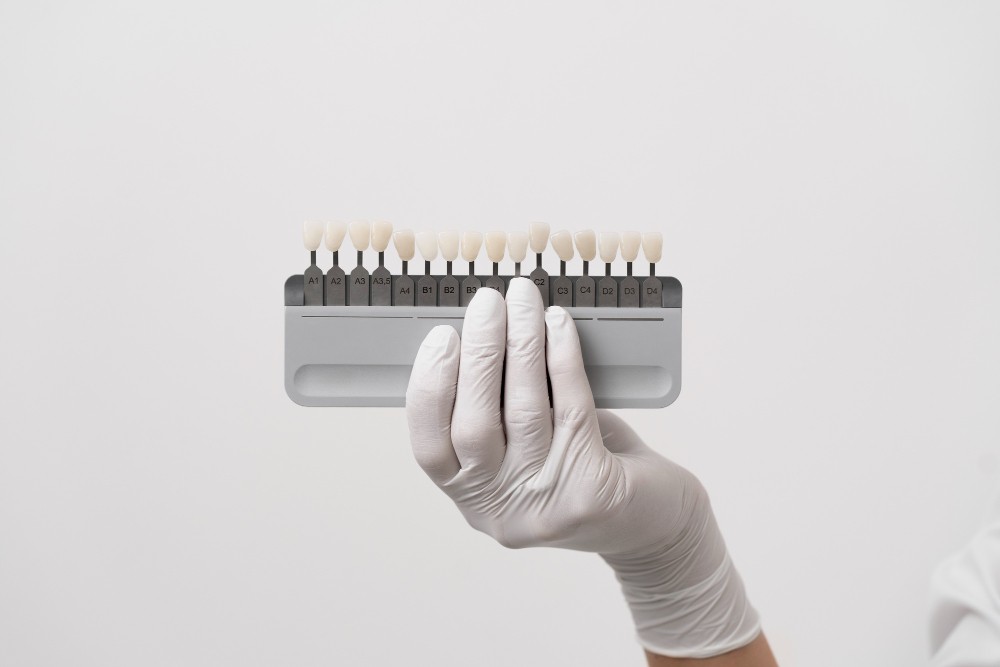Choosing the right dental crown can significantly impact the aesthetics and functionality of your smile. With advancements in dentistry, two popular options have emerged: zirconia and ceramic crowns. This detailed guide explores the delicate topic of zirconia crowns vs ceramic crowns to empower you to make an informed decision for your dental restoration needs.
What are Zirconia and Ceramic Tooth Crowns?
-
Zirconia Crowns: Crafted from a robust, white material called zirconium dioxide, zirconia crowns undergo a unique process to enhance strength and aesthetics. Renowned for their exceptional durability and biocompatibility, they excel in posterior (back) teeth restorations due to their resistance to fractures.
-
Ceramic Crowns: Typically made from porcelain or other ceramic materials, these crowns are celebrated for their natural tooth-like appearance and seamless integration with surrounding teeth. Their superior aesthetics make them a popular choice for anterior (front) teeth restorations.
Aesthetics: Striking a Balance Between Beauty and Function
For many patients, a crown’s appearance is a top concern. Here’s the Zirconia Crowns vs Ceramic Crowns image battle:
-
Zirconia Crowns: Offering a good balance between aesthetics and strength, zirconia crowns provide a natural look. However, they may not perfectly mimic the translucency of natural teeth. They come in various shades to match your existing teeth and can be customized for optimal aesthetics.
-
Ceramic Crowns: Unmatched in aesthetics, ceramic crowns are the go-to choice for front teeth restorations. They boast a remarkable translucency that replicates natural teeth and can be precisely matched to your surrounding teeth for a flawless, natural-looking restoration.
Durability and Strength
The crown’s ability to withstand daily wear and tear is crucial. Let’s see how zirconia and ceramic crowns fare in terms of durability:
-
Zirconia Crowns: Renowned for their exceptional strength, zirconia crowns are a popular choice for posterior teeth. They are highly resistant to fractures and can endure the forces of chewing and biting. Dentists often recommend them for patients who grind their teeth or have a history of dental fractures.
-
Ceramic Crowns: While not as strong as zirconia, ceramic crowns are still durable and can withstand normal chewing and biting forces. However, they may be more prone to chipping or fracturing compared to zirconia crowns. Dentists may recommend them for patients seeking a natural-looking restoration for their anterior teeth.
Biocompatibility and Allergies
Biocompatibility refers to a material’s compatibility with the human body. It’s essential for a crown’s long-term success and patient comfort. Here’s a comparison:
-
Zirconia Crowns: Biocompatible and hypoallergenic, zirconia crowns are an excellent choice for individuals with metal allergies or sensitivities. They are non-toxic and well-tolerated by oral tissues.
-
Ceramic Crowns: Generally considered biocompatible, particularly those made from porcelain, ceramic crowns are well-tolerated by most patients. However, in rare cases, some individuals may be allergic to the materials used in certain ceramic crowns.
Cost Considerations
Cost is a significant factor when choosing a crown. Here’s a general overview:
-
Zirconia Crowns: Typically more expensive than ceramic crowns. This can be attributed to the material’s strength, durability, and complex manufacturing process.
-
Ceramic Crowns: Often more affordable than zirconia crowns, making them a popular choice for patients seeking an aesthetically pleasing restoration on a tighter budget.
Zirconia Crowns vs Ceramic Crowns, Choosing Right
Both zirconia and ceramic crowns offer distinct advantages. Zirconia crowns excel in durability and biocompatibility, making them ideal for posterior teeth. Ceramic crowns, on the other hand, reign supreme in aesthetics, perfect for anterior teeth restorations.
To make the best choice, consult a qualified dentist. They can assess your dental condition, discuss your goals, and recommend the most suitable crown material for your unique case. Remember, the ultimate goal is to achieve a beautiful, functional, and long-lasting dental restoration.
Prioritize Regular Dental Care for Optimal Oral Health
Regular dental check-ups and proper oral hygiene practices are crucial for maintaining the lifespan of your dental crown and ensuring optimal oral health. This includes brushing twice daily, flossing regularly, and scheduling routine dental visits.
Make an informed decision for a healthier, more confident smile! CONTACT US FOR A CONSULT







